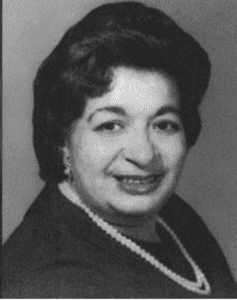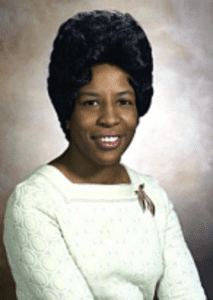
Notes From Olympia: Feb. 4, Week 4 of the 2022 Legislative Session
Included in this edition: Trivia, Highlights of the Week and Legislative Updates.

Photo credit: Erica Hallock
Trivia!
Who was the first Black woman elected to the Washington State Legislature?
Highlights of the Week
Paid Family and Medical Leave. In a Jan. 18 work session to the Senate Ways and Means Committee, Employment Security Department staff provided an overview of cash-flow challenges facing the state’s Paid Family and Medical Leave program.
Funded by a combination of employer and employee contributions, the program began January 2020, providing 12 weeks paid time off to bond with a new child or address a serious medical condition of a worker or worker’s family member. To date, more than 37% of applications have been for bonding with a new child; just over 50% for addressing an individual’s medical condition; and 12% for caring for a family member with a serious medical condition.
The program launched right before COVID-19 hit and applications have far exceeded projections, creating a fund deficit beginning as early as March or April 2022. At this time, it is unclear the extent to which the pandemic spiked demand and how projections may need to be adjusted going forward.
For now, budget writers are being briefed on the issue to ensure they allocate sufficient funding to keep the Fund solvent and allow for the continuation of paid leave. Current estimates range from a budget shortfall of $110 million to $405 million.
Fair Start for Kids Act Work Session. On Feb. 2, the Senate Early Learning and K-12 Committee held a work session that led with an overview of the implementation of the Fair Start for Kids Act to date.
DCYF Assistant Secretary Nicole Rose delivered the agency’s presentation, which included data points updated from a similar work session held in the House Children, Youth and Families Committee last month. Updated information included:
- Child Care Stabilization Grants. As of Jan. 31, DCYF approved 4,872 stabilization grants, representing nearly $288.5 million to stabilize the child care sector.
- ECEAP Expansion. Funding is available for 750 expansion slots in the 2022-23 school year. DCYF received applications totaling 1,358 slots, with the requests breaking down as follows: 214 part-day, 948 school-day and 196 working-day.
- Working Connections Child Care Expansions. After income eligibility rose to 60% of State Median Income Oct. 1 and co-payment amounts dropped, DCYF estimates 2300 new families will be eligible. Roughly 300 families have enrolled to date.
- Home Visiting Expansion. DCYF received $2.6 million in requests from 14 programs for $1.3 million in available funding.
- Early Learning Facilities Fund. More than 140 applications were received totaling $73 million, far exceeding the $22 million included in the Capital Budget.
Assistant Secretary Rose emphasized the workforce challenges facing all sectors of early learning. Staffing limitations in early learning are exacerbated by chronically low compensation and the spread of the Omicron variant which is particularly impacting child care and ECEAP classrooms.
With regard to ECEAP, Assistant Secretary Rose noted the higher demand for school and work-day slots compared to part-day slots. She noted that programs requested to return/convert about 300 part-day slots due to low demand. Senator Claire Wilson reiterated that part-day slots meet very few families’ needs, and this reality should be considered in expansion planning.
WSIPP Study on ECEAP. The Washington State Institute of Public Policy (WSIPP) released a January 2022 evaluation of ECEAP and its impact on kindergarten readiness for part- and school-day enrollees. This evaluation resulted from 2019 legislation which required WSIPP to look at ECEAP dosage models (e.g., the comparative impacts of part-day and school-day programs).
Start Early Washington’s Jess Galvez wrote the following summary of the evaluation. Thanks, Jess!
The evaluation examines the relationship between school-day and part-day ECAEP model enrollment and child outcomes. Overall, children exposed to more hours of high-quality early learning programs are more likely to be kindergarten-ready than children attending part-day classes. Specifically, WSIPP notes, … “children in school-day [models] are 15% more likely (on average) to achieve proficiency in all six WaKIDS domains, relative to children attending part-day [models].”
Further, the report’s main analysis indicates a positive relationship between school-day enrollment and kindergarten readiness for non-Hispanic children. However, additional subgroup analyses suggest a significant relationship between school-day enrollment and kindergarten readiness for non-Hispanic BIPOC and white children.
Legislative Updates
The short, 60-day legislative sessions are truly a sprint with one cut-off (deadline) quickly followed by another. Thursday, we saw policy committee cut-off, the deadline for bills to pass out of policy committees. This then pivots to focus on fiscal committees with fiscal committee cut-off scheduled for Monday, Feb. 7. We will see marathon meetings of the Senate Ways and Means and Appropriations Committees prior to that Monday deadline. This includes an anticipated full day of Saturday meetings.
Following the fiscal committee cut-off, attention will shift to Floor activity in both chambers, with the deadline for bills to pass out of their house of origin by Feb. 15. Legislative leaders are watching the COVID-19 caseload numbers closely, and we may see more legislators in-person for Floor activity during this period.
New Length for the Legislative Session? At times, bills are introduced that make me think lawmakers want to ensure we are paying attention. On Jan. 31, Reps. Volz and Walsh introduced HB 2109 which would change the timing of legislative sessions in odd-numbered years from 105 days to ONE (1) day. I assume this bill is intended to make a statement.
Updated Bill Tracker. Don’t forget, Start Early Washington’s bill tracker is available on our website. Because bills are never really “dead” until Sine Die, we created a separate section of the chart for bills that did not advance by the deadlines – in case they get a second life in the process.
Trivia Answer
Peggy Maxie was the first Black woman elected to the Washington State Legislature in 1971, representing the 37th District (Seattle) in the House of Representatives.
This was a bit of a trick question because Representative Maxie was not actually the first Black woman to serve in the Legislature, but she was the first elected. In 1965, Marjorie Pitter King was appointed to complete an unexpired term, becoming the first non-white and first Black woman to serve in the House of Representatives. Pitter King was defeated in the 1966 election.

Representative Marjorie Pitter King
Photo credit: Washington State Secretary of State
In my research, I learned a lot of information about Representative Peggy Joan Maxie, who represented the Central area of Seattle from 1971-1982. The first interesting fact is that Representative Maxie was not the original Maxie planning to run for the State Legislature. Her brother Fred planned to run but opted to attend law school instead. Because signs were already printed with the name Maxie, Peggy Joan Maxie decided to throw her hat in the ring.

The 37th District legislative seat became open after the incumbent, David Sprague, decided not to run after his house was bombed. I had to read that a few times. Yes, his home was bombed.
There was speculation that Representative Maxie benefited from name recognition as Spokane’s Carl Maxey (different spelling) was engaged in a primary race with former U.S. Senator Henry “Scoop” Jackson during the same election cycle.
After Maxie was elected to the House of Representatives, she needed permission from the Dean of her Master of Social Work program at the University of Washington to continue as a student and serve concurrently as a state legislator. It is interesting to note that while a student, her master’s thesis focused on no-fault divorce, an issue the Legislature addressed the year after she published her thesis.
One of her first acts was to sponsor legislation to bring the first Driver’s License testing facility to her district. She lived by the motto to “not make promises she couldn’t keep and be aware of the state’s limitations.”
While in the House of Representatives, Representative Maxie chaired the House Higher Education Committee and fought back an effort by then Governor Evans to increase college tuition, stressing that increasing tuition has consequences for all people like “veterans, working mothers and the poor.” She also co-sponsored the Displaced Homemakers Act to help women in the “middle years” affected by divorce, death or disability of a spouse. The Act was intended to provide support to women who did not have extensive work experience, obtain training and other supports through community and technical colleges. Finally, Representative Maxie was the founding member of Women in Unity, a non-profit organization with a mission to develop, advocate, educate and spread information on issues affecting the African American community, including employment of African American women.
Representative Maxie was defeated in her 1982 re-election bid by future Governor Gary Locke (another interesting tidbit). She currently lives in King County, where she has worked as a mental health therapist.

Representative Peggy Joan Maxie
Photo credit: Washington State Secretary of State
Sources: HistoryLink, Washington State Secretary of State, Black Past
About the Author

Erica Hallock
Director, Policy & Advocacy, Start Early Washington
Erica Hallock serves as the Director of Policy and Advocacy for Start Early Washington. She has worked in early childhood, health and human services policy in both California and Washington state.
More Like This
Contact Us
Connect with our team to learn more about our work or discuss how we can support policy and advocacy work for your organization.
Washington State Hub
Learn more about our work in Washington state and access relevant resources and publications.
